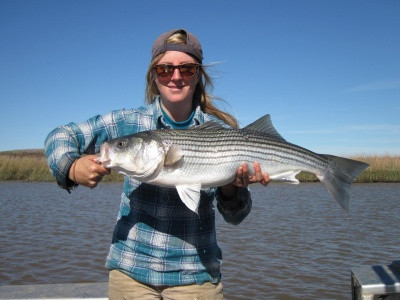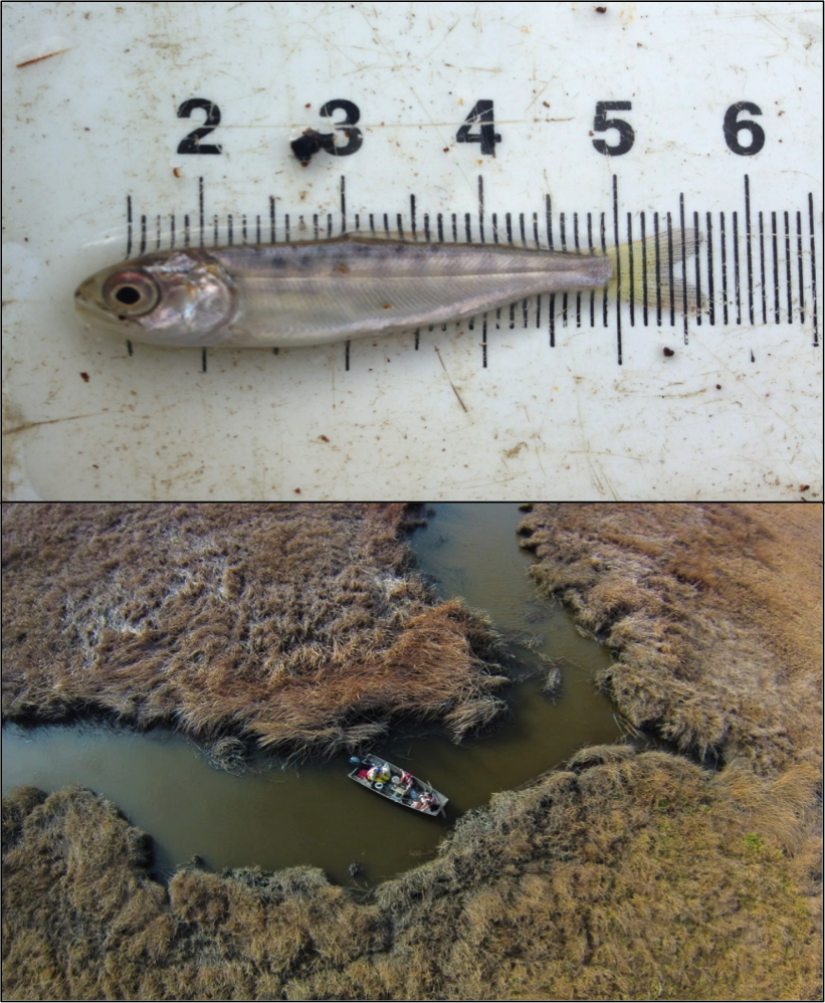
How does it feel to earn the Delta Science Fellowship?
It’s an honor to be selected for the Delta Science Fellowship. I’m looking forward to continuing my graduate research at the Center for Watershed Sciences with the support of California Sea Grant and the Delta Science Program.
What will this award allow you to do that you might not have done without it?
Completing my doctoral degree with guidance from my faculty advisor, Dr. Peter Moyle, and my community mentor, Dr. Ted Sommer at the Department of Water Resources. Since I have collected my field data, I will use this award to analyze data, write papers and present my findings at scientific conferences. I will no longer be TAing for the Department of Wildlife, Fish and Conservation Biology, which is an extremely fun but demanding job.
What will you research and how might it benefit the world?
I study fish nursery areas in the San Francisco Estuary. Specifically, I am interested in the following questions: (1) Does natural tidal marsh increase juvenile fish density, biomass and growth? (2) How do juvenile fish move into and out of natural tidal marsh, and for how long do they reside there? (3) What prey items do fish consume in natural tidal marsh? Hopefully the answers to these questions will help inform future habitat restoration projects aiming to promote juvenile fish recruitment in the San Francisco Estuary, since only 5-10% of natural tidal marsh remains in the present-day ecosystem.

What sparked your interest in your research, or science in general?
Research is inquiry, investigation and discovery. It’s endlessly interesting to research a favorite topic – right now, my favorite topic is estuarine ecology. I grew up in the Bay Area, where everyone proudly reps “the Bay”. In school we learned about Ohlone dependence on shellfish and read Jack London’s stories about a fish patrol arresting oyster pirates at the Port of Oakland. We explored fish markets in China Town and toured Angel Island, the Bay Model, and Martin Luther King, Jr. Shoreline Park. These assignments piqued my interest in natural and human history, ecology and fisheries. I was fascinated to learn that the San Francisco Estuary used to support an abundance of salmonids, sturgeons, smelts, clupeids, flatfish, crabs and shrimp, and that the Bay’s shorelines were once lined with tidal marshes, oyster reefs and eelgrass beds.
Now I am dedicated to researching tidal marsh ecology in the San Francisco Estuary. I hope future generations of Bay Area residents can enjoy the rich natural resources the Bay has to offer and continue to celebrate the amazing native and endemic flora and fauna that also call the Bay home.

What advice do you have for people wanting to follow a similar path in science like yours?
Get involved in research opportunities while you’re an undergraduate student: volunteer, find a mentor, ask questions, show up on time, stay until the work is finished, read papers on your free time, and go after internships. Remember it’s just as important to cross things off your list as it is to circle them. There are many laboratories, networking opportunities and potential employers who might like to write you a letter of recommendation when you graduate – take advantage of this while you can! Plus, it’s really fun, especially when you get to catch fish.
- Written by Megan Nguyen. A version of this article first appeared on the UC Davis Center for Watershed Sciences in May 2016.